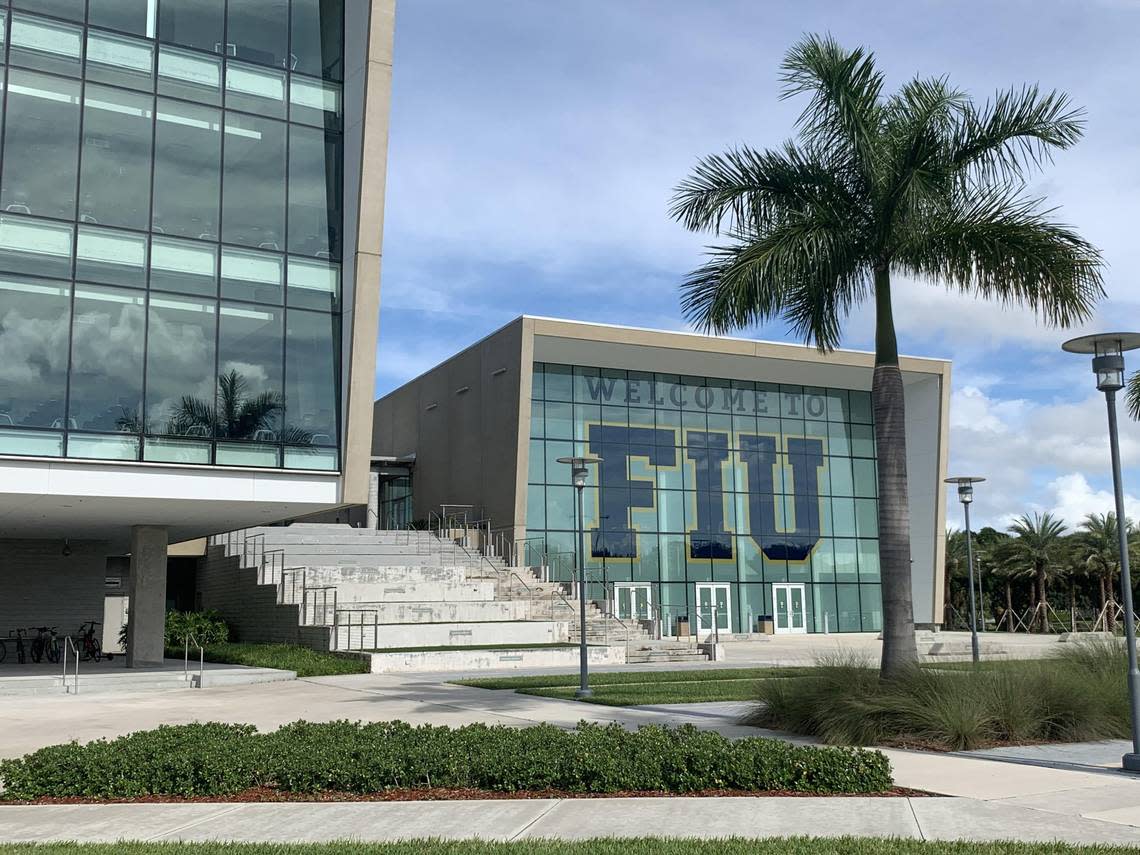Was FIU’s solution to the controversial Cuban immigration book correct? Depends | Opinion

Confronted with the ire of Cuban-American Republican politicians over a controversial book about Cuban immigration “privilege,” Florida International University President Kenneth A. Jessell has intervened in the affair.
The university has taken a beating on Cuban radio, Twitter and other social media for doing what universities do: presenting, in a public forum, published research.
Using old and modern tools of opinion suppression, newly elected pols asked for nothing less than a cancellation of the book’s presentation and the repudiation of a scholar at a major American university.
Tweeted Cuban-American Republicans of Florida: “Why is @FIUPresident going out of his way to accommodate a bigoted professor who wants to peddle hate in the capital of the Cuban exile community? @FIU must disavow this event & issue a public apology to the Cuban community. Anything less is an insult. #SOSCuba.”
The Cuban regime, expert suppressors of any dissent, couldn’t have written a better script for that tweet.
Not to mention that using, for censorship purposes, the #SOSCuba hashtag that called attention to historic protests and human rights abuses on the island is disgusting.
But it’s the convenient spin of an ignorant, new generation of Cuban American local elected officials and state legislators who don’t know Cuba with any depth — and are only using its struggles to score political points in red Florida.
Including critics
No, President Jessell wasn’t “going out of his way” to do anything.
Academic book presentations are routine events handled by university departments, as this one was by FIU’s short-staffed Cuban Research Institute, not the president’s office.
But Jessell is now going the extra mile to include his GOP critics in the conversation about a book, published by prestigious Cambridge University Press, that compares welcomed and legalized Cuban immigration to that of Haitians and Dominicans.
It’s a fact: While Cubans, under the law, can adjust their status a year after arrival and can obtain entitlements, other immigrants regularly end up interdicted, detained, deported and have few legal rights to claim.
His accommodation of people who dubbed the book by University of Boston professor Susan Eckstein “hate-filled” and “anti-Cuban” without reading it wasn’t a Solomonic decision.
He didn’t split the baby in half.
Instead, he added another person to the discussion, a Cuban American human rights activist with a doctorate, Orlando Gutiérrez-Boronat — and he moved the affair to a bigger location so that all in “the community” who wanted to, could participate.
And so, what might have been an unremarkable presentation of “Cuban Privilege: The Making of Immigrant Inequality in America” at Books & Books in Coral Gables will now take place Friday night on campus at the Wertheim Performing Arts Center.
“The event now ensures that we meet the academic rigor and standards of debate and preserve everyone’s right to express their point of view while remaining mindful and sensitive to the experiences of our community,” Jessell said Friday in a message to “the university community.”
READ MORE: Facing backlash, FIU taps human-rights voice to join ‘Cuban Privilege’ author at talk
What kind of precedent?
But does Jessell’s intervention set a good or bad precedent for academic freedom and the “community” he’s trying to protect?
It depends. Maybe.
I don’t disagree with the changes made with input from CRI director Jorge Duany. In a way, FIU is taking the higher road by being inclusive and modeling behavior that its critics wouldn’t allow at their own events.
To educate by example is powerful.
One of the reasons the Cuba story never changes is that no one will budge from their corner on the right or left.
So, if all goes well, this could turn out to be a brilliant move to showcase what a democracy looks like. But if embarrassing shows of intolerance take place, as too often has occurred in the past, Miami loses.
Gutiérrez-Boronat, spokesperson for the Cuban Democratic Directorate and author of the book “Cuba: The Doctrine of the Lie,” has a lot of responsibility on his shoulders as discussant, an academic term for a person whose role is to provide constructive criticism, adding another dimension to the discussion.
Good discussants elevate the conversation.
Gutiérrez-Boronat, an Op-Ed contributor to the Herald, has plenty to work with.
A top center-left Cuban American academic described the book to me in private as “terrible and frankly racist” and “filled with stereotypes and erroneous information.” Then added: “Still, it should be debated.”
A well-known Democrat told me FIU should’ve exercised better judgment and never invited Eckstein. She had seen a video of the professor discussing the book and found her tone and the way she spoke of Cubans “offensive.”
So there’s some non-partisan criticism as well.
Florida censorship wars
Another fact: The controversy over the book isn’t solely happening in a Miami vacuum.
It may feel that way to those of us concerned about the resurgence of attempts to control what can be freely said in Miami on the subject of Cuba. But acts of censorship are happening all over Florida and in other red states as well.
Perhaps Florida International University can lead the way to healthy reflection, debate and co-existence. But will Republicans ever be satisfied with anything but Cuba-like, all-out repudiation?
Outside Miami, people see us as undemocratic zealots, and it hurts not only our community, but the cause of a free Cuba. Potential allies balk when they see the hypocrisy of intolerant people who purport to want democracy elsewhere.
If the hostile atmosphere created scares Eckstein and she cancels, Miami will be raked over the coals for what it has become: a deeply worrisome city where Proud Boys are setting the rules of engagement.
